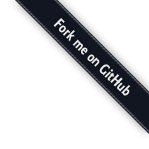Framework
An introduction to the MirChord framework and an API reference to common components useful for algorithmic music. Learn how to build your score algorithmically.
In the notation language section we learned how to craft a score using a domain specific language (DSL) and how to extend it using groovy with custom transformations. However, behind the curtains, the mirchord interpreter uses a rich set of music software components to build the score.
Now we are going to see how to create a score using these raw components.
This section requires a basic knowledge of the Groovy programming language (or Java since most Java code is also valid Groovy code)
The pitch class
Let's start with the most basic object type, a simple Pitch
def pitch = new Pitch('C',4,0) // symbol, octave, alteration
int midiKey = pitch.getMidiValue()
double hertz = 440f * Math.pow(2, (midiKey - 69) / 12f)
println "Pitch " + pitch + " with midiKey " + midiKey + " hertz " + hertz
should print to the console
Pitch C4[60] with midiKey 60 hertz 261.62558Score with builder
As you guess every kind of musical entity presented in the notation language has a counterpart in the object model so you can create an entire score in the stardard imperative paradigm. However, even if this is a viable option, a more straightforward manner to create a score with the object model is to use a special groovy builder named ScoreBuilder.
// first measures of "Fra Martino"
def f4 = fr(1,4)
def f2 = fr(1,2)
def f1 = fr(1,1)
def fra_martino = new ScoreBuilder().score() {
part(id:"1") {
voice(id:"1") {
clef(type:ClefType.TREBLE)
key(fifths:0, mode:KeyMode.MAJOR)
time(time:fr(4,4))
tempo(baseBeat:fr(1,4), bpm:90)
(1..2).each {
chord(midiPitch:60, duration:f4)
chord(midiPitch:62, duration:f4)
chord(midiPitch:64, duration:f4)
chord(midiPitch:60, duration:f4)
}
instrument(id:"Violin 1", program:41)
(1..2).each {
chord(midiPitch:64, duration:f4)
chord(midiPitch:65, duration:f4)
chord(midiPitch:67, duration:f2)
}
}
}
}
def midiFile = projectPath.resolve('midi/FraMartino.mid').toFile()
saveAs(fra_martino, midiFile)
In the example above after the score creation we saved it in a MIDI file.
Coming soon...
Algorithmic music using AI techinques
Coming soon...
